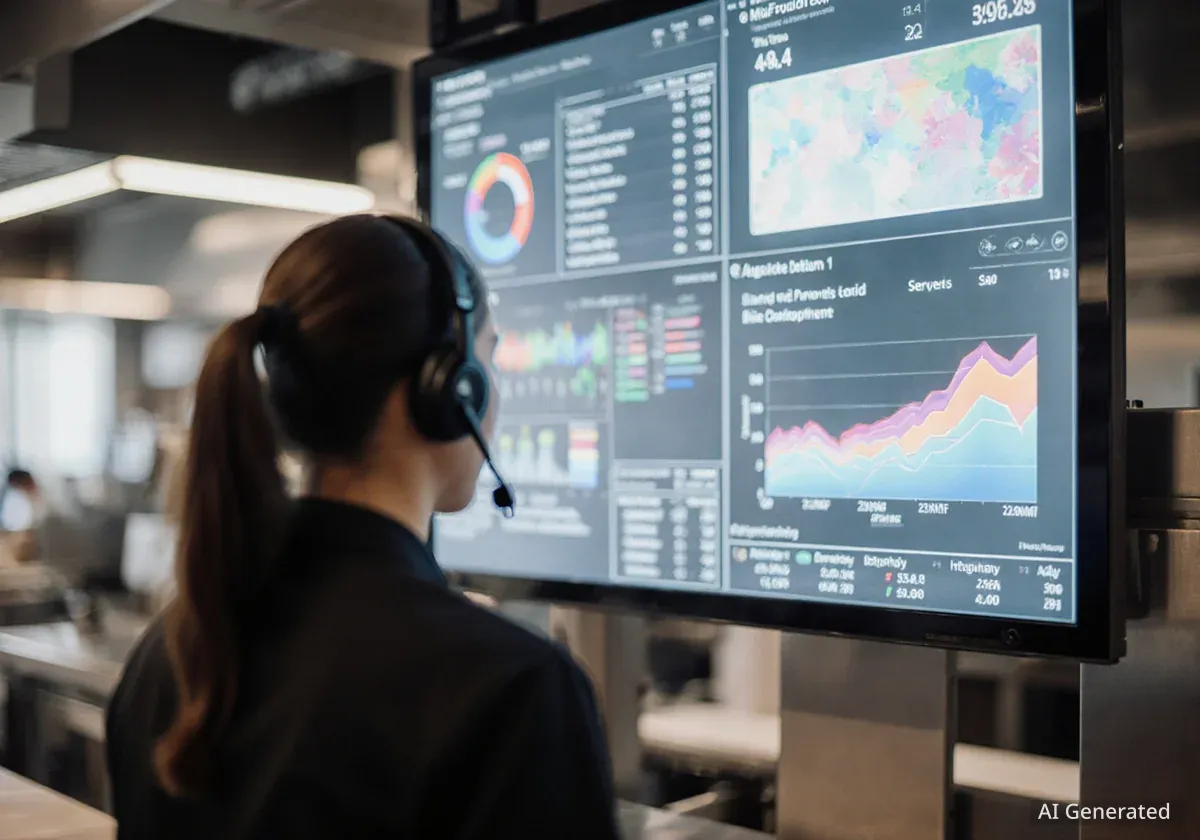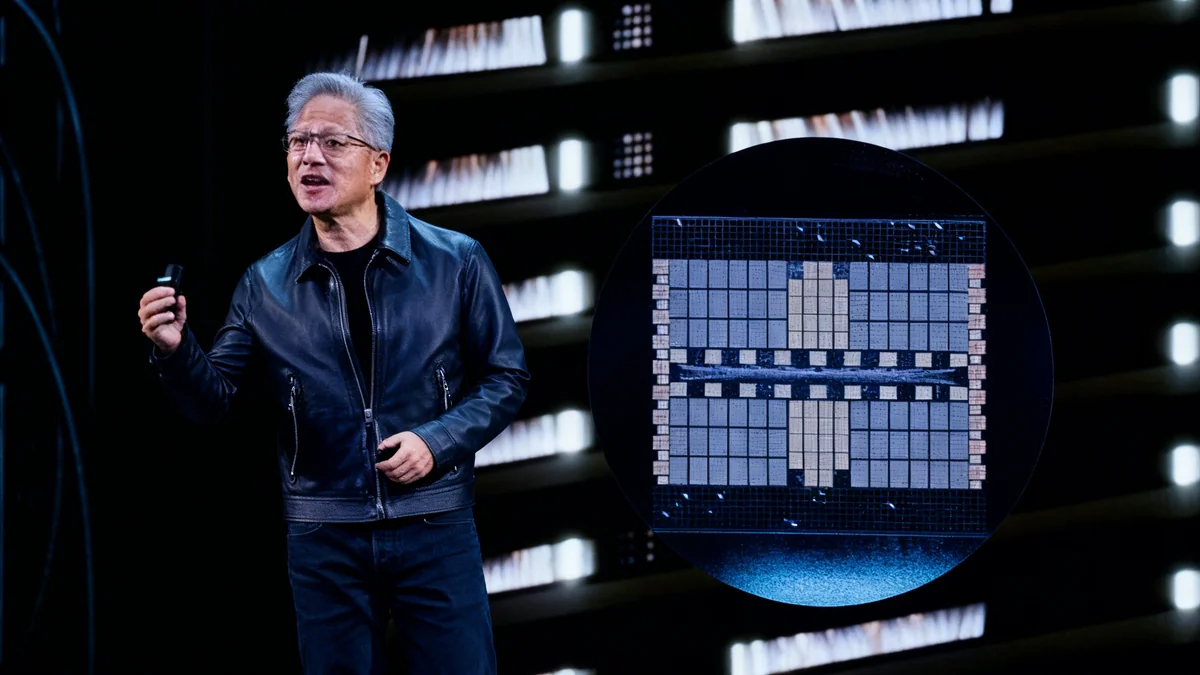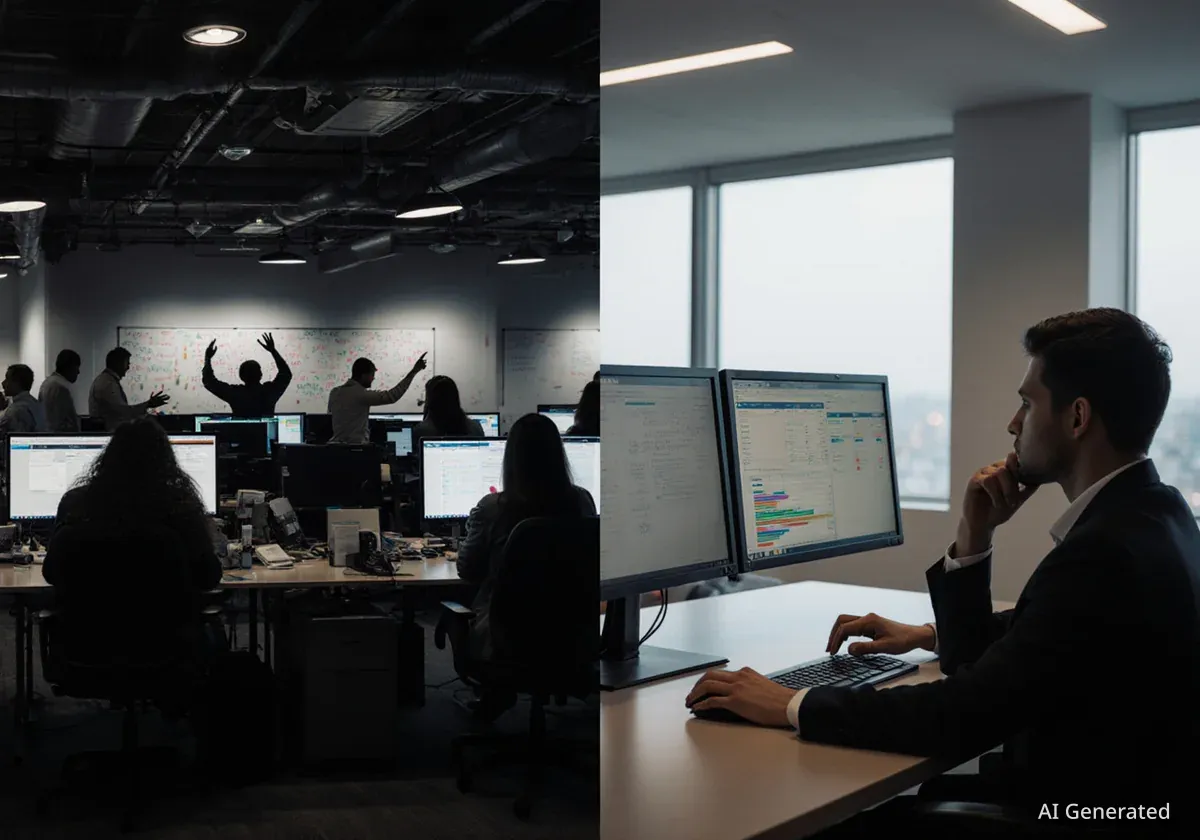The cloud platform Vercel has successfully implemented an artificial intelligence strategy that automates key sales functions by replicating the workflow of its highest-performing employee. This initiative has allowed the company to reduce a 10-person inbound sales team to a single human manager overseeing an AI agent, reassigning the other nine employees to more complex roles.
The move signals a growing trend where businesses are not just adopting general AI tools, but creating bespoke AI agents trained on their own internal experts. This approach aims to scale excellence and shift human capital toward higher-value work, rather than reducing overall headcount.
Key Takeaways
- Vercel developed an AI agent by studying its top-performing sales representative for six weeks.
- An inbound sales team of 10 was restructured to one person managing the AI agent.
- The nine displaced employees were moved to outbound prospecting positions, which the company defines as higher-value work.
- The company's goal is to automate repetitive tasks and elevate human roles, not to cut jobs.
- Vercel plans to deploy hundreds of similar AI agents across the company within the next year.
A New Model for AI Training
In a significant move to integrate artificial intelligence into its core operations, Vercel, a developer-focused cloud platform valued at $9.3 billion, has pioneered a novel training method for its AI systems. Instead of relying on generic data sets, the company has chosen to model its AI agents directly on the habits and processes of its most successful employees.
The project began in June within the sales department. A team of three engineers was tasked with a unique assignment: to shadow the top-performing sales development representative for six weeks. During this period, they meticulously documented every action, decision, and communication technique used by the employee to handle inbound customer queries.
This detailed blueprint of excellence became the foundation for Vercel's first major AI sales agent. The resulting system was designed not just to perform tasks, but to perform them with the same efficiency and effectiveness as the company's best human example.
What Are AI Agents?
AI agents are a step beyond simple chatbots or automation scripts. They are autonomous systems that can understand a goal, break it down into smaller steps, create a plan, and execute that plan without continuous human prompting. In Vercel's case, the agent handles a multi-step process from receiving a query to qualifying a lead.
Transforming the Sales Floor
The impact of the new "lead agent" was immediate and profound. The system now automates the majority of tasks previously handled by the entire inbound sales development team. Its responsibilities are comprehensive and demonstrate a significant level of autonomy.
The agent's daily workflow includes:
- Screening Incoming Messages: It automatically reviews all inbound communications, filtering out spam and irrelevant queries.
- Lead Qualification: The agent queries internal databases and utilizes tools like OpenAI's Deep Research to gather information on potential clients, determining their viability as leads.
- Personalized Communication: Based on its research, the AI drafts personalized response emails tailored to each qualified lead.
- Intelligent Routing: If a query is identified as a support issue rather than a sales lead, the agent automatically routes it to the correct department.
While the agent operates autonomously, it is not without human oversight. A single manager now supervises the AI's work through a Slack channel. This manager reviews the drafted communications and provides feedback, which helps the system continuously learn and refine its tone to better match Vercel's brand voice.
"If you can document a workflow, it's now pretty straightforward to have an agent do it," Jeanne DeWitt Grosser, Vercel's Chief Operating Officer, explained. She emphasized that the goal is to free up human potential.
Redeploying Human Talent
A key outcome of this AI implementation was the restructuring of the sales team. The 10-person team that once handled inbound queries was downsized to just one human manager. However, the company states this was not a layoff. The remaining nine employees were reassigned to outbound prospecting roles.
According to Grosser, this is a strategic move to focus human effort on more complex and valuable activities. Outbound prospecting requires more creativity, strategic thinking, and nuanced communication skills than the more repetitive, process-driven work of handling inbound leads. This aligns with the company's stated philosophy of using AI to augment its workforce, not replace it.
Workforce Impact
Despite automating a role previously held by 10 people, Vercel's leadership confirmed that the company's overall headcount has actually grown over the past year. This supports their claim that the AI strategy is focused on reallocation of labor, not reduction.
Leading this strategic AI push is David Totten, who recently joined Vercel as its new Vice President of Global Field Engineering after roles at Databricks and Microsoft. Totten sees this as the natural evolution of business best practices.
"Modeling after the top-performing employees has always been a standard business practice. The difference now is that technology lets us accelerate it," Totten stated.
Grosser likened the process to how a company would train a promising intern. "You wouldn't put an intern with somebody who was not showing up to work every day... You put an intern with your best performers," she said. The principle is the same for their AI agents: learn from the best to replicate the best.
The Future of Work at Vercel
The success of the lead qualification agent is just the beginning for Vercel. The company already has six similar AI agents deployed in various roles and has ambitious plans to scale this initiative dramatically. The target is to have hundreds of agents operational within the next six to twelve months, each modeled on a top performer in a specific, replicable role.
The company has identified key criteria for tasks that are ripe for automation by these agents. The ideal workflow is one that is replicable and deterministic, meaning it can be consistently documented and produces the same output for a given input.
This leaves the more ambiguous, creative, and intellectually demanding work for humans. Grosser believes this is a positive development for the workforce. "My personal view is humans are capable of a lot more than most jobs allow them to do," she said. By automating the mundane, Vercel aims to unlock that untapped potential, allowing employees to focus on strategy, innovation, and complex problem-solving—tasks that AI cannot yet master.





